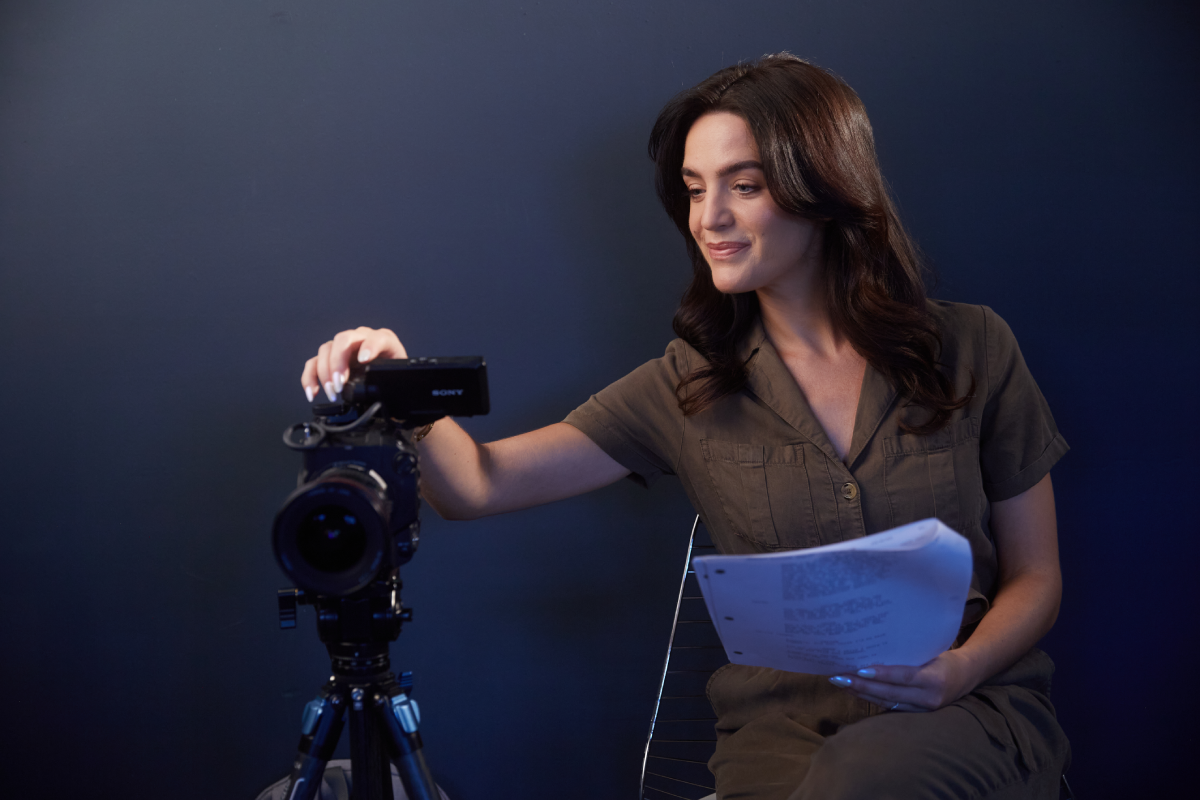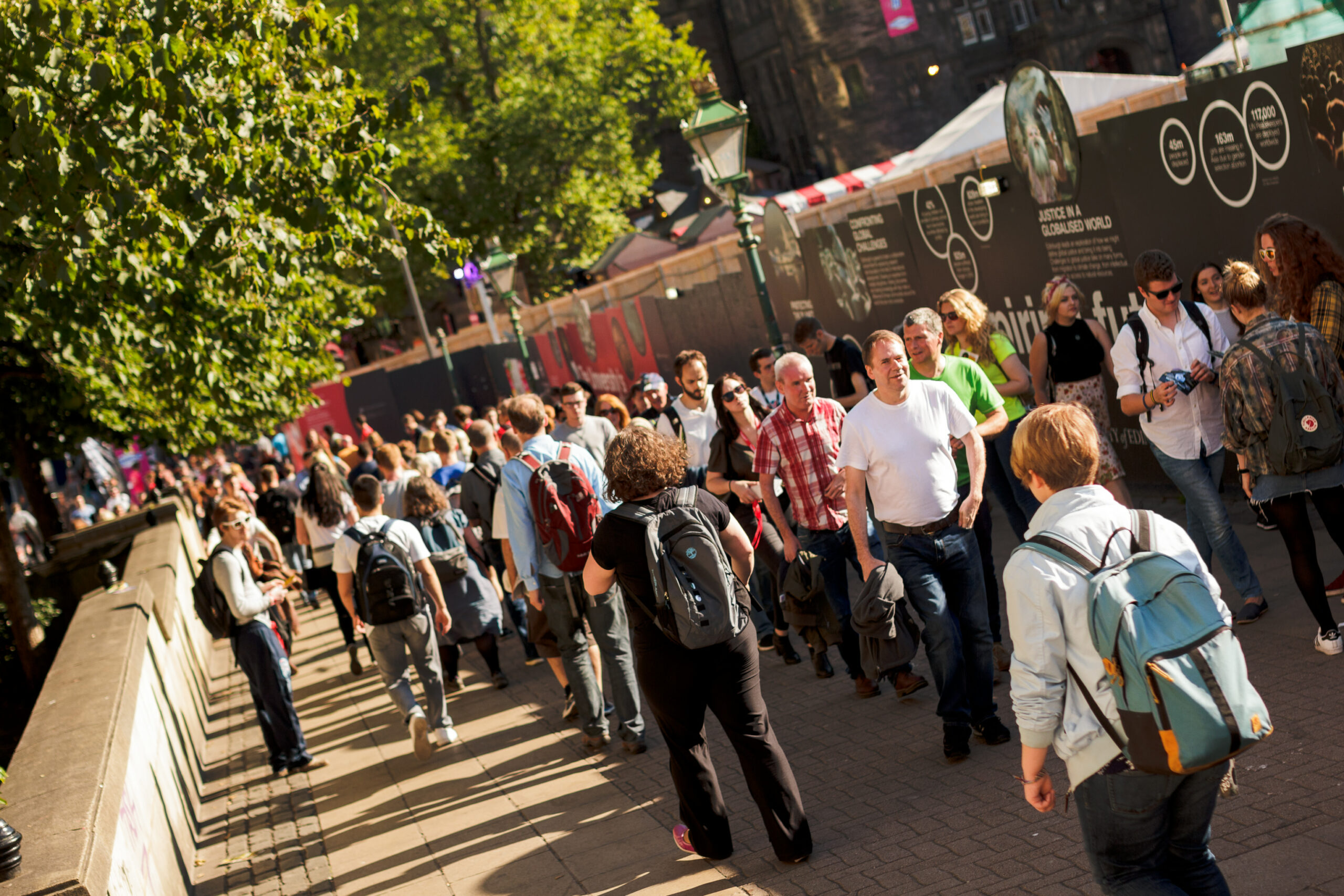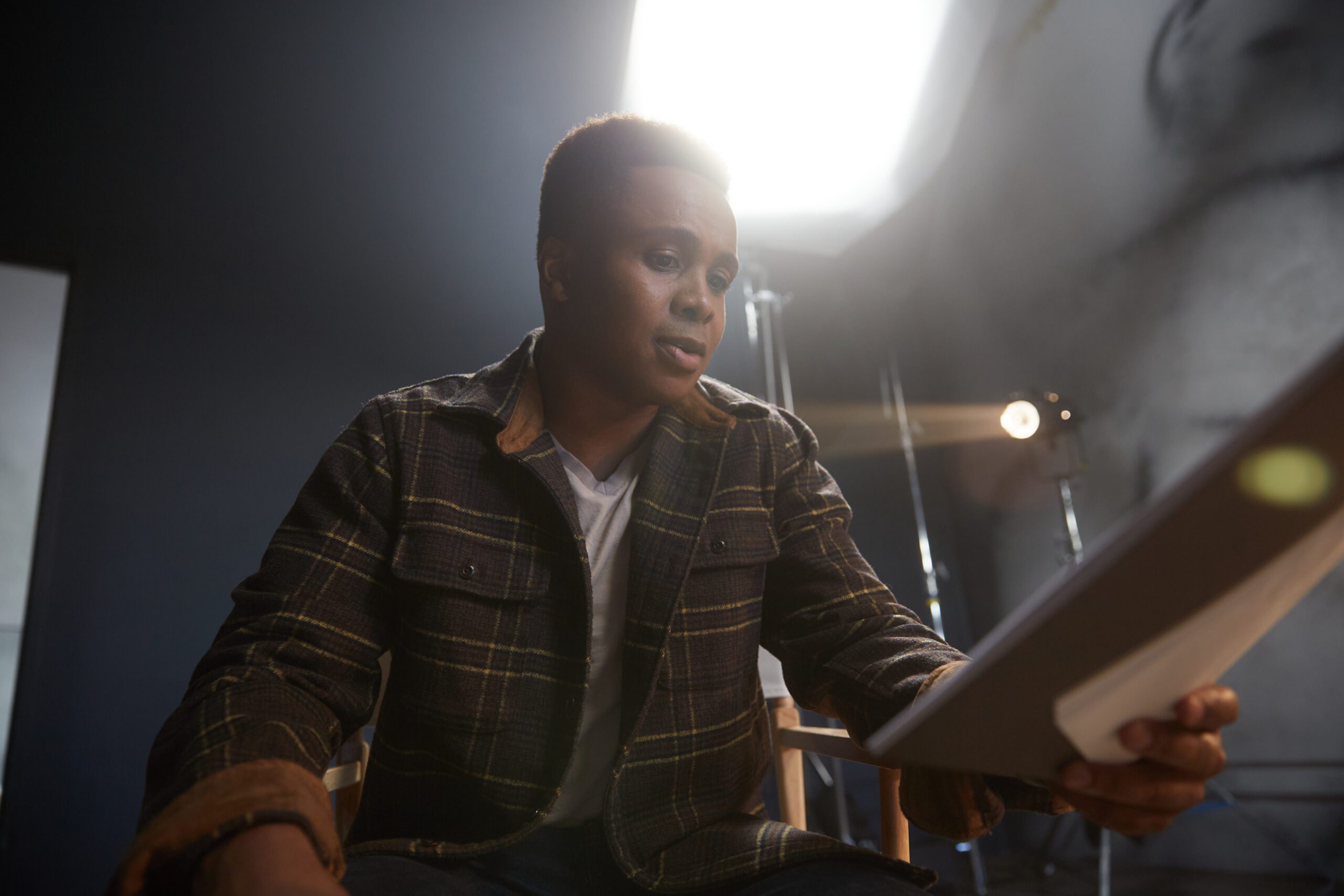Gareth Nicholls (Associate Director of Traverse) talked to Spotlight all about his road to becoming a theatre director, tackling tough contemporary issues and what he looks for in new writing…
[Collaboration is] trusting that the actors you have are absolutely the best actors for the job and that they are experts in their craft, just as much as the lighting or sound designers – everyone around you is an expert and it’s about trusting that…
What inspired you to become a director?
It’s a really hard question! I think the draw of it is that I love collaborating with people, and in the role of the director you get to collaborate with actors, writers, lighting designers and designers…in the role as Associate as well, I have a lot of meetings with new writers and emerging directors, marketing, technical staff… I think that cross spread of working with lots of different people with lots of different ideas [is something] I really enjoy – it’s very inspiring in many ways. The role of director to collaborate and bring out the best in people – to bring people together – really suits me. I think that’s one of the main draws for me.
Were you a big theatre-goer growing up?
Not at all – I went to panto once a year. I was never part of any kind of youth theatre or anything like that. I always enjoyed it at school and got good grades so thought, “Oh, I’ll do it again next year.” I kinda stumbled my way into it, really. I guess compared to a lot of people who went to youth theatre from an early age, I was probably a late developer. Leaving school, I applied to one drama school – now the RCS – and I was lucky enough to get in. I went in very blind to it all, so it was a steep learning curve.
What’s it been like working with the Traverse?
As a freelance director, I toured a lot of work for the Traverse. During the festival, it feels like the epicentre of new writing. I don’t think there’s anywhere where you get such a diverse range of high quality work – dramas, comedies, quite experimental work – during the festival, there’s a real buzz to it. I love the work, and the people.
I think some of the work that’s started to come through is dead exciting. Ulster American is a new play by David Ireland – it’s quite a full on play in many ways, but it feels like an important play.
Why this play, and why now? What was it that appealed to you as a director?
I’ve always loved David Ireland’s work; I think he’s a brilliant writer, really intelligent, ferociously funny. I think it’s just one of the best plays I’ve read… it’s cracking. We had a chat about working together and he threw me a first draft of this play that he wrote about two years ago on spec, which was all about abuse of power, through the prisms of cultural identity and gender politics, and language. It felt right on the money in terms of what is happening now, in loads of industries but especially in the entertainment industry in Hollywood with Weinstein…in the theatre industry, the #MeToo movement… it doesn’t look at that directly but certainly asks lots of questions indirectly. The way he does it is really funny but also quite brutal.
We got the script and the festival was only 6 months off at that point and we thought we have to do it. We have to turn it around and do it this year. this is the year that it is going to say the most, have the impact…
It has to be a piece that’s evocative, that provokes something in a visceral way and an intellectual way. So long as it stirs me and does something that makes me turn the next page, then anything goes.
It’s certainly a contemporary issue – on the minds of many, which is clear just by looking at this year’s Fringe programme. I’m interested: what do you think the challenges are of talking about something quite so complex and devastating to the industry?
We talked a lot about that and it’s not a piece about #MeToo or Weinstein – there will be other brilliant artists who do that successfully. What David was really keen on exploring was more the abuse of power – it’s more general in some ways, but he felt he had more to say about that, through the triangle of a director, actor and a writer. The play is about three people who meet the night before rehearsals are going to begin on a play. David grew up in Belfast in the 90s, so it draws on that, on people confusing notions of identity around Britishness and Irishness and how that can get manipulated in order to exert power. I think that’s one of the main challenges – you’ve got to feel like you have something to say. Ulster American doesn’t give you the answers – it asks a lot of questions.
For our readers who might be thinking about writing their own work in the near future, what would you say is the most essential quality that you look for in new writing?
Ultimately it’s about what the piece says about the world in which we live, you know? That’s about it – being very much about the now. That doesn’t mean it has to be set in 2018; it could be a piece set 200 years ago, but which is absolutely about the now. I think that’s the thing – it has to be a piece that’s evocative, that provokes something in a visceral way and an intellectual way. So long as it stirs me and does something that makes me turn the next page, then anything goes. I think that’s the great thing about new writing – it spans such a vast range of genres and styles.
Dive in to the community head first – it’s your first step to learning your craft.
What about those who might be hoping to direct, particularly if they’re based in Scotland?
There are loads of initiatives in Scotland, from scratch nights to new writing initiatives like Stage to Page that are always looking for directors for [development] pieces. Getting involved at grassroots level is always a brilliant place to meet new people, meet like minded people and become a part of the community. That’s what is so great about working in Scotland; there’s a strong sense of community or helping one another. We’re not in competition, we gain more through collaboration, and I think that’s really prevalent in Scotland.
So I’d say dive in to the community head first – it’s your first step to learning your craft. Then it’s about introducing yourself to people, sending them an email and asking, ‘do you have time for a coffee?’ A lot of assistant or associate directors may not have time right now, but most people will say yeah, sure, but can we meet in a month or so. Most people want to meet and say hello.
There’s a brilliant initiative called Theatre Directors Scotland which is a group of directors and they do training events and instill that sense of community. From a director’s point of view, Stage Directors UK have a depot in Scotland and are another brilliant organisation that provides meetings and training opportunities and a place to ring, and talk to if you have problems. There’s lots going on for people to dive straight into. That’s the best thing you can do: grab every opportunity because you just never know where it’s going to lead
You mentioned about the appeal and importance of collaboration – I know you’ve collaborated a few times with Gary McNair, who we’re hoping to speak to soon. What was that like and what’s the key to a good collaboration?
I’ve worked with Gary loads of times – three shows together at the Traverse [and] a bunch of other projects as well. It’s always a balance between working with new people, as you can learn a lot from someone [different], but working with Gary or [regular] collaborators, there’s still a lot to be gained from building up a relationship where you trust one another and you can really know how to push one another to be the best you can be. I think that’s why I’ve enjoyed working with Gary – as he’s evolved as a writer, I’ve evolved as a director. We know how to get the best out of each other, when to question each other, things like that.
[As for good collaboration] I think it is communication, but it’s also about trusting your collaborators. Trusting that the actors you have are absolutely the best actors for the job and that they are experts in their craft, just as much as the lighting or sound designers – everyone around you is an expert and it’s about trusting that, not having to do it all yourself, if you have the luxury of a wider creative team. I know plenty of people at the Fringe don’t, but certainly trusting those around you and actually, when they push the work and you push back, that’s all for the good of the show. Trust, working both ways, is essential to any useful collaboration because the minute that disappears it’s hard work.
Catch Gareth’s latest work Ulster American at Traverse throughout this year’s Fringe. Got any other questions you’d like answered at this year’s Fringe? Let us know on Twitter!



















